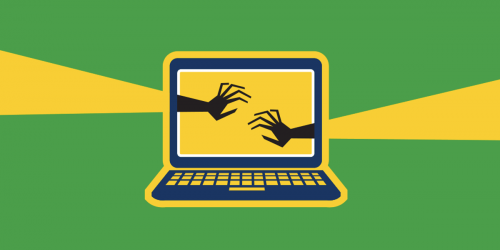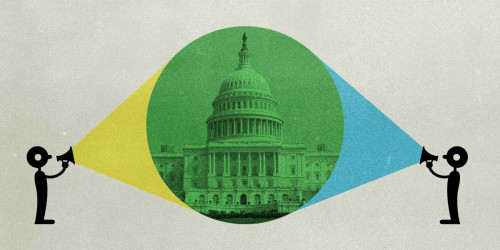More than 15 state legislatures are considering the “Human Trafficking Prevention Act” (HTPA). But don’t let the name fool you: this bill would do nothing to address human trafficking. Instead, it would only threaten your free speech and privacy in a misguided attempt to block and tax online pornography.
EFF opposed versions of this bill in over a dozen states last year, and the bill failed in all of them. Now HTPA is back, and we have written in opposition against the bill again to urge lawmakers to oppose it this year.
The gist of the model legislation is this: Device manufacturers would be forced to install "obscenity filters" on cell phones, tablets, computers, and any other Internet-connected devices. Those filters could only be removed if consumers pay a $20 fee. In addition to violating the First Amendment and burdening consumers and businesses, this would allow the government to intrude into consumers’ private lives and restrict their control over their own devices.
On top of that, the story of this bill’s provenance is bizarre and highly recommended reading for any lawmakers considering it. In short, the HTPA is part of a multi-state effort coordinated by the same person behind a bill to delegitimize same-sex marriages as “parody marriages.” In this post, however, we’ll be focusing on the policy itself.
HTPA—also sometimes named the Human Trafficking and Child Exploitation Prevention Act—has been introduced in the following states: Hawaii (Version 1, 2), Illinois, Indiana, Iowa, Kansas, Maryland, Mississippi, Missouri, New Mexico, New Jersey (Assembly, Senate), New York, Rhode Island, South Carolina, Tennessee (House, Senate), Virginia, West Virginia (Senate, House), and Wyoming.
While some versions of the legislation vary, each hits the following points.
Pre-Installed Filters
Manufacturers of Internet-enabled devices would be required to pre-install filters to block webpages and applications that contain sexual content. Although different versions of the bill specify this content differently, the end result is the same: an unconstitutional restriction on the lawful speech people can access and engage with on the Internet.
A Censorship Tax
After overriding consumer choice and forcing people to purchase filtering software they don’t necessarily want, the bill would require users to pay a $20 fee per device to remove the filters and to exercise their First Amendment rights to look at legal content. Between smartphones, tablets, desktop computers, TVs, gaming consoles, routers, and other Internet-enabled devices, consumers could end up paying a small fortune to unlock all of the devices in their home.
Data Collection
Anyone who wants to unlock the filters on their devices would have to put their request in writing, show ID, and verify that they’ve been shown a “written warning regarding the potential dangers” of removing the obscenity filter. That means that companies would be maintaining records on everyone who wanted their “Human Trafficking” filters removed. As EFF Stanton Fellow Camille Fischer explains in our opposition letter:
To be clear, the HTPA’s deactivation process does not simply chill speech; it also requires consumers to sacrifice their privacy and anonymity, as the price of exercising their First Amendment rights. If enacted, consumers would be forced to identify themselves when making a written request for filter deactivation, creating a humiliating situation that suggests they want access to controversial sexual material. … In short, HTPA deactivation would be a frightening form of thought-based surveillance.
Unlocking such filters would not just be about accessing pornography. A gamer could be seeking to improve the performance of their computer by deleting unnecessary software. A parent may want to install premium child safety software that is incompatible with a pre-installed filter. And, of course, many users will simply want to freely surf the Internet without repeatedly being denied access to legal content.
Building A Censorship Machine
The bill would force the companies we rely upon for open access to the Internet to create a massive, easily abused censorship apparatus. Tech companies would be required to operate call centers or online reporting centers to monitor complaints about which sites should or should not be filtered.
The technical requirements for this kind of aggressive platform censorship at scale are simply unworkable. If the attempts of social media sites to censor pornographic images are any indication, we cannot count on algorithms to distinguish, for example, nude art from medical information from pornography. Facing risk of legal liability, companies would likely over-censor and sweep up legal content in their censorship net.
Do The Right Thing
Already lawmakers are starting to see through this legislation. In 2018, the bill has died in committees in Mississippi and Virginia. Democratic senators in New Mexico who introduced the legislation pulled back the bill days after EFF raised the alarm.
Legislators should continue to do the right thing: uphold the Constitution, protect consumers, and not use the real problem of human trafficking as an excuse to deprive users of their privacy and free speech.







